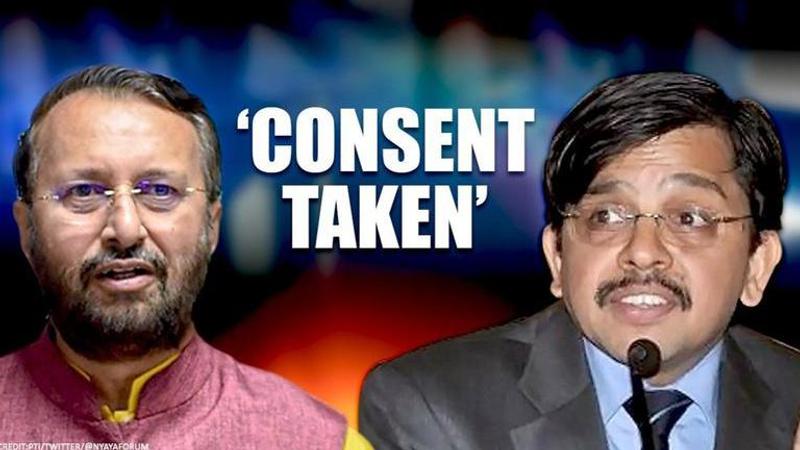Published 16:20 IST, February 27th 2020
Javadekar defends govt on Justice Muralidhar's transfer; reveals judge's consent was taken
Union Environment Minister Prakash Javadekar revealed that Justice S Muralidhar’s consent had been taken for his transfer to the Punjab and Haryana High Court.

Addressing a press conference on Thursday, Union Environment Minister Prakash Javadekar revealed that Justice S Muralidhar’s consent had been taken for his transfer to the Punjab and Haryana High Court. He mentioned that the government took its decision after the Supreme Court recommended his transfer on February 12. Javadekar alleged that the Congress party was raising this issue to divert attention from its own responsibility in allegedly instigating violence. Earlier in the day, Union Law and Justice Minister Ravi Shankar Prasad accused the Congress of politicising a routine transfer.
Prakash Javadekar remarked, “The transfer of Justice S Muralidhar was done pursuant to the recommendation done by the Supreme Court collegium headed by the Chief Justice. They recommended on February 12. And the judge’s consent has been already taken. Timing is that after the Collegium recommends, then only the government acts. Congress is trying to divert attention from their own responsibility.”
Controversy over transfer
The Supreme Court Collegium recommending the transfer of Justice Muralidhar to the Punjab and Haryana High Court on February 12 had created quite a flutter in the legal circles. In an urgent meeting of its Executive Committee, the Delhi High Court Bar Association resolved to abstain from work on February 20 to protest against Justice Muralidhar’s transfer. Describing him as one of the “finest” judges, the Association claimed that the SC Collegium’s move was detrimental to the institution.
The current opposition expressed by Congress and other parties stems from the fact that the transfer happened on the day when Justice Muralidhar pulled up the Delhi Police for the non-registration of FIRs against leaders giving provocative speeches allegedly leading to the violence in the national capital. In another matter related to the violence, Justice Muralidhar asked the highest functionaries of the state and Central government to meet the victims and their families. Stressing that a 1984-like scenario cannot be allowed to unfold, he directed several relief measures for the victims of the violence.
Criticism in recent times
After being elevated as a judge of the Delhi High Court in 2006, he delivered many landmark verdicts such as the Hashimpura massacre case and the decriminalisation of homosexuality. He has also been at the receiving end of criticism in recent times. For instance, he set aside the transit remand of activist Gautam Navlakha in the Bhima Koregoan- Elgar Parishad case in 2018.
Thereafter, S Gurumurthy- now a non-official director on the Reserve Bank of India Board publicly questioned this verdict. He alleged that the order was influenced by the alleged association between Navlakha and Usha Ramanathan, Justice Muralidhar’s wife. The latter has been at the forefront of opposing the Aadhaar programme.
Updated 16:20 IST, February 27th 2020




